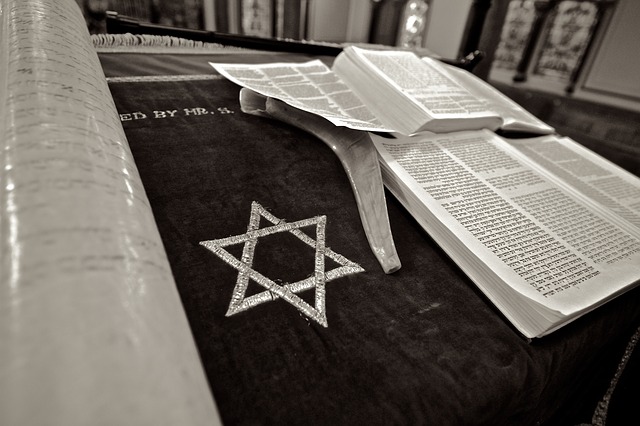Hebrew greetings of “shana tova,” “have a good year” and “g’mar chatima tov,” or “may you be sealed in the book of life,” echo throughout campus. The Jewish community at UM is celebrating the high holidays, Rosh Hashanah and Yom Kippur, just weeks after Hurricane Irma threatened the celebrations.
Rosh Hashanah ran from Sept. 20 to Sept. 22 this year. As the beginning of the new year in Jewish tradition, it symbolizes a new beginning to the Jewish people. It is a time to reflect and to think about the year ahead.
Members of UM Hillel planned to spend Rosh Hashanah at the Braman Miller Center on campus, but Hurricane Irma challenged this plan. Damage to the campus prevented access to the building until Sept. 22, the last day of the holiday.
Carly Greenspan, the director of Jewish Life at UM Hillel, said the community stepped in to help: UM Chabad offered to partner with Hillel for dinner, and Temple Judea in Coral Gables opened its doors for a private Rosh Hashanah service led by UM Rabbi Lyle Rothman.
Although campus closures inconvenienced students, they made a point to return.
“I think it is absolutely critical that students not only at UM but all universities find a home away from home … to find a sense of community where they can find love,” said treasurer of Hillel Andrew Weinstock, a senior majoring in finance.
Weinstock said Hillel has been a second home for him since he arrived on campus his freshman year, and he said he did not want the hurricane to interrupt the campus community’s celebration of Rosh Hashanah.
Greenspan said UM staff members understand the importance of celebrating Rosh Hashanah.
“Hillel always makes sure students have a place to celebrate the holidays, so even with everything that happened with Irma, we made sure this year was no exception,” Greenspan said.
Rosh Hashanah is followed 10 days later by Yom Kippur, the day of atonement. This year, it began on the evening of Sept. 29 and ends the night of Sept. 30. It is a day when people are asked to repent for their sins. Part of the repentance is traditionally a fast.
“Another prayer we say a lot during the high holidays, it basically translates to ‘on Rosh Hashanah it is written, and on Yom Kippur it is sealed,'” said senior Megan Lipsky, vice president of UM Hillel, who fasted for the holiday. “Obviously, fasting is not something I look forward to, but it is an integral part of the experience and it brings the community slightly closer together.”
Because the fast is not necessarily enjoyable, President of Hillel Seth Manilove did not fast in high school. But that changed for him in college.
“Now it was one of the most important experiences for me during the Jewish year,” the senior biology major said. “It allows me to connect with myself and understand the true meaning and importance of the holiday.”
Hillel offered multiple services for Yom Kippur. The Friday evening service included a traditional recitation of “Kol nidre.” The haunting chant is one of the most beautiful services of the year, Lipsky said.
“I would expect it to be played as you’re walking toward a haunted house,” Lipsky said. “It really does make you think about the year that has passed, what you’ve done, how you could be better, and again with that a little challenge to be a better person.”
While some students connect more with the traditional rituals, UM Hillel understands not everyone can. Hillel offers an alternative Yom Kippur experience that is shorter than the long prayer services, in English and presented in a contemporary context. Last year, students did yoga and discussed what it means to be a good person.
“We recognize that maybe people didn’t come from super traditional Jewish backgrounds, or maybe they are exploring Judaism for the first time, so providing interesting, innovative ways to connect with the text and Judaism at large is pretty important to us,” Lipsky said.
At their core, the high holidays are a time for reflection on the past year, and a time to recommit oneself to spirituality, self-improvement and morality. Many people use this time to not only ask God for forgiveness but to ask each other for it, too.
“Going up to people and saying, ‘Maybe I did something that you didn’t like or that I didn’t mean and I’m truly sorry,'” Lipsky said. “Because it’s important to say things like that and recognize that we’re not perfect.”
Feature photo courtesy pixabay user hurk.






